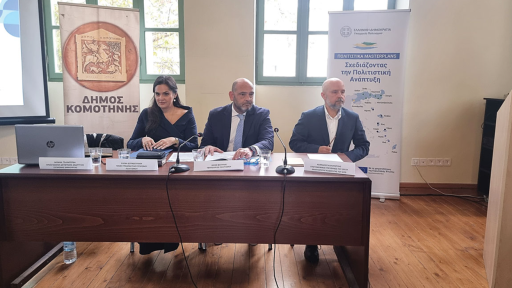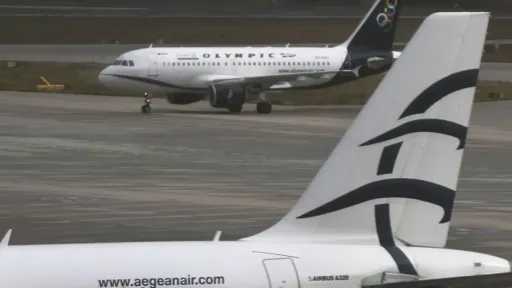Cultural masterplans form the basis for collaboration among municipalities in Eastern Macedonia and Thrace

The Cultural Masterplans developed for the municipalities of Gümülcine, Sofulu, Kavala, Dedeağaç, İskeçe, and Drama were officially presented at the Tsanakleio Municipal Library of Gümülcine on Tuesday morning, October 7.
The event took place as part of the Ministry of Culture’s project “Design of Cultural Masterplans, Cultural Development Policy, and Cultural Identity (Brand) for Selected Regions of Greece.” It was attended by Deputy Minister of Culture Iason Fotilas, Secretary General for Contemporary Culture Eleni Doundoulaki, and university academics and researchers who contributed to the initiative.
Deputy Minister Fotilas described the Masterplans as “a creative and developmental tool that depends on how local communities and their institutions choose to use it.”
Komotini’s Cultural Masterplan
The Gümülcine Masterplan envisions transforming the city into a vibrant and dynamic cultural hub of supra-local significance, where art, creativity, and cultural participation thrive through the empowerment of local stakeholders and infrastructure, the development of synergies, and the integration of innovation.
The plan includes 14 actions, 4 structures, and 5 projects, combining the enhancement of existing initiatives — such as “All of Thrace in One Circle” and WelKOM — with the creation of new ones, including gastronomy and music festivals, as well as city promotion and tour activities.
Key pillars of the strategy are the Municipal and Regional Theatre of Gümülcine (DIPETHE) and the Gümülcine Concert Hall, both of which are set to be further supported. One of the standout proposals is the establishment of a Music Department at the Democritus University of Thrace, to be housed in the renovated former Courthouse building.
Development and Methodology
The Komotini Masterplan was presented by Assoc. Prof. Phyllio Katsavounidou from Aristotle University of Thessaloniki, a member of the team that developed the strategy for Gümülcine and İskeçe under the coordination of Thanasis Kalogeresis.
According to Katsavounidou, the plan was developed through extensive fieldwork, interviews with key cultural figures and organizations, and public consultation processes to integrate local perspectives.
She emphasized that the Masterplan aims to serve as a roadmap for the future, coordinated by the municipality and local cultural bodies, to achieve a common vision.
“We cannot plan culture without considering the people, the jobs that must be developed to keep them in their communities, and the outcomes that will be passed on to future generations,” she noted.
Broader Cultural and Economic Impact
The Gümülcine Concert Hall was highlighted as a flagship example of how cultural infrastructure can drive economic and social development, potentially positioning Gümülcine as a regional cultural center.
The Masterplan also includes proposals such as establishing a Music School to bridge diverse local communities, organizing a Balkan Cultural Festival, and emphasizing the importance of the Tsanakleio Library and the Exagono Cultural Center as collaborative models between the municipality and social cooperatives (KOINSEP) to sustain vital cultural operations.
The initiative seeks to ensure coordinated efforts among all cultural stakeholders, addressing one of the most persistent challenges in smaller cities — the lack of structured collaboration.
Source: Paratiritis News

